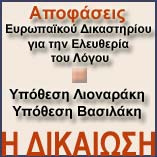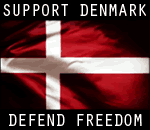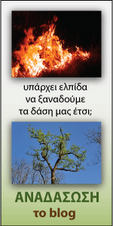
The University of Chicago
News Office
August 18, 2009
Rose Friedman, an economist and co-author of a number of important books with her late husband Milton Friedman, died of heart failure on Tuesday, Aug. 18 at her home in Davis, Calif. While the exact date of her birth is uncertain, she is believed to have been 98 years old.
Friedman and her husband, a University of Chicago professor and winner of the 1976 Nobel Memorial Prize in Economic Sciences, were the authors of a number of influential books, including Capitalism and Freedom and Free To Choose, which was published as a companion book to a public television series by the same name. Ronald Reagan, Margaret Thatcher and free-market leaders in Eastern Europe were all devoted admirers of the Friedmans' views.
“Rose Friedman was fully involved in all the personal and professional decisions made along with Milton Friedman, her husband of over half a century,” said Gary Becker, University Professor in Economics at the University of Chicago. “She was also a significant economist in her own right. In her early years she wrote important articles on consumer behavior and other subjects. She had very active involvement in producing other policy-oriented books associated with Milton Friedman. She had an excellent command of how competition and markets should influence important policy questions. In particular, along with Milton, she created a foundation devoted to promoting choice, and especially vouchers, in the K-12 school system.”
President Robert J. Zimmer noted Friedman’s stature as a writer and her contribution to intellectual life on campus. “For years, Rose was a vibrant and valued presence in the University of Chicago community,” Zimmer said.
Despite the unusually high public profile their work brought them, the Friedmans remained devoted academics, they wrote in their memoir Two Lucky People, which the University of Chicago Press published in 1998. “We reflected again on the wonderful dividend from graduate teaching, of having intellectual children throughout the world … and on the emotional hold which the University of Chicago has had on those who have been there,” they wrote.
“Rose and Milton were wonderfully complementary; she added a note of skepticism to help season Milton's exuberant optimism and was the ever-present peer reviewer for whatever ideas were in the air. All that while raising a family and managing an active home and social life. They really were two lucky people, and we who knew them shared in this luck,” said Stephen Stigler, the Ernest DeWitt Burton Distinguished Service Professor in Statistics.
Rose Friedman will be remembered as a talented economist and an influential advocate of freedom, said her daughter Janet Friedman. “Her economic work helped to discredit the idea of government management of the economy, rolling back policies that were hindering wealth creation and thus helping extend the blessings of prosperity to millions around the world. And as a standard-bearer for human liberty, she contributed to the galvanizing of public opinion, especially in the 1980s, against the growing encroachments of intrusive government,” she said.
“In addition to being a delightful person, Rose Friedman was an insightful scholar and an important collaborator with Milton Friedman on policy-oriented research,” said Lars Hansen, the Homer J. Livingston Distinguished Service Professor in Economics. “The University of Chicago has lost a longtime friend.”
Rose and Milton Friedman were married for 68 years. He died Nov. 16, 2006 at age 94.
She was born in a small Russian village in what is now part of Ukraine. Her birth records are lost, but she believed she had been born during December 1910. When she was an infant, her mother took her children and left for America, settling in Portland, Ore., where her father had already moved to escape threats against his life arising from anti-Semitism. They left just before that part of the countryside was devastated during World War I.
She attended Reed College and then transferred to the University of Chicago, where she received a Bachelor of Philosophy degree. She continued her training in economics at the University of Chicago, completing all work for a Ph.D. except for writing a thesis.
Rose Director met Milton Friedman in 1932, when the two were seated next to each other in alphabetical order as graduate students at the University of Chicago. In Two Lucky People, Milton acknowledged Rose as having been a crucial partner in nearly all his economic and public policy work. In addition to her many accomplishments, Rose had the distinction of being the only person known to have won an argument against Milton Friedman.
Her most important contribution was the 1980 book Free to Choose, which she co-wrote with her husband, and the accompanying 10-part PBS series. Both were highly successful— the book topped the best-seller list for five weeks — and had a profound impact on public discussions of freedom. At a time when the nation’s confidence was at an all-time low, Free to Choose helped restore America’s faith in liberty, Janet Friedman said.
In 1996, the Friedmans founded the Milton and Rose D. Friedman Foundation to promote school choice policies, which allow parents to choose a public or private school for their children. From then on, the Friedmans concentrated their efforts on promoting educational reform through school choice.
Rose Friedman was preceded in death by her brother, Aaron Director, who was a member of the Law School faculty at the University of Chicago and a distinguished economist who founded the field of Law and Economics. He came to the University of Chicago in 1927 as a graduate student and remained as an instructor and brought his sister Rose to study at Chicago. He died Saturday, Sept. 11, 2004.
In addition to her daughter Janet, Rose Friedman is survived by her son David, four grandchildren and three great grandchildren. In accordance with her requests, her body will be cremated, and her ashes scattered at sea.
The family has asked that in lieu of flowers or gifts, contributions be made in her honor to The Friedman Foundation for Educational Choice.

























